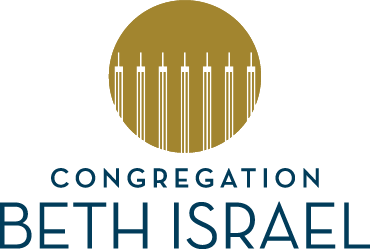“Emerging to be Free”

“Emerging to be Free”
From the desk of Rabbi David Lyon
Passover begins next week on the evening of Saturday, March 27, 2021. The theme of liberation from bondage seems entirely apropos after a year of pandemic lockdown and isolation. Though hardly as bad as 430 years of slavery in Egypt under the heavy hand of taskmasters that required the hand of God to free the Israelites, the current pandemic was, nonetheless, a life-altering event that caused pain, suffering, and loss. The comparison is apt.
When Moses delayed on Mt. Sinai, the Israelites built a molten calf to worship instead of God. Our ancestors quickly abandoned all hope that freedom was better than bondage, and a false god was better than Adonai. To this day, The Golden Calf is a sore spot in Jewish history.
Like the Israelites who emerged from Egypt to enter the wilderness, we’re emerging from our homes to enter offices, houses of worship, and community settings with some fear and trepidation, too. Some of us lack faith in the science that provided vaccines in record time and are saving countless lives. Others lack confidence that authorities in science, faith, and government are being truthful about the coronavirus. Such fears are not uncommon. It’s not the first plague or virus that has swept the world and created panic in the last century. There was the pandemic of 1918, the scourge of Polio, and even rheumatic fever. But let’s learn from our history, ancient and modern, and resist the temptation to build a veritable Golden Calf, a false idol against real faith and leadership.
When we sit down at our Passover tables with family and friends, on Zoom, in masks, and physically distanced, we need to retell our shared history that has its roots in Egypt, followed by redemption, and then by revelation at Sinai. But we also need to talk about contemporary bondage that includes the last year under the weight of COVID-19. It’s the perfect moment to use the paradigm of Passover to free ourselves, to the extent that we can, and see that science and religion are remarkable partners that put a shot in our arms and faith in our hearts.
Two weeks ago, I had my second dose of the Pfizer vaccine. For me, the side-effects sidelined me for three days. But Tylenol and rest enabled me to emerge, not invincible, but safely prepared to resume my role and activities. My contribution, like yours, to the well-being of our community should reveal a better year as we take our steps from prolonged isolation to enduring freedom. What will I do with my freedom? With protocols still in place, I plan to visit my mother for the first time in 14 months, and I’ll see my grandson for the first time in more than 18 months, and who grew to be 2.5 years-old without me. What will you do with your freedom?
Far from hundreds of years of slavery, we can emerge with gratitude for what we still have together. We have greater love for those we can embrace again. We have greater hope for less complex lives focused on what matters most. We have greater faith in humanity’s contributions to global health and well-being. We have greater peace knowing that our greatest fears have been defeated with a dose of reason, rationality, and faith.
Now two readings for your Passover table. From “Mishkan HaSeder, a Passover Haggadah” newly published by CCARPress (www.ccarpress.org), Reform Judaism’s premier publishing house.
Revelation by Jacqueline Kudler (b.1935)
For every exile who walked out of Egypt between walls of water;
For everyone who remembered the feel of a sea bottom underfoot, the sibilant roar of water rearing on the right, on the left, someone forgot. Someone scanning the dry horizon for a well, or already mourning the musky smell of autumn in her father’s fig trees, forgot the hosannahs, and, by the bitter waters of Marah, forgot the flash of dancing feet, the shimmer of timbrels.
For every proselyte at Sinai, someone never heard the horns at all. Someone turned back from the mountain to bank the fire, feed the baby, steal a secret moment with another.
Revelation begins in attention: while the elders trembled before the word of God flowing down the scorched north flank of Sinai, someone, rising from a last long embrace, gazed into the rapt face of the beloved and saw that it was good.
Motto by Bertolt Brecht (1898-1956)
In the dark times,
Will there also be singing?
Yes, there will also be singing
About the dark times.
L’Shalom,
![]()
